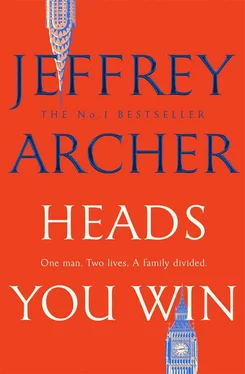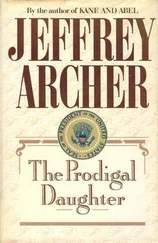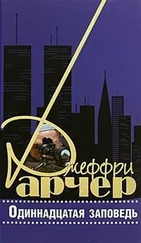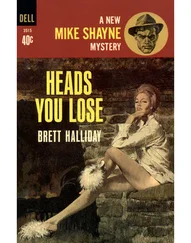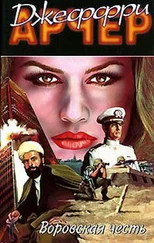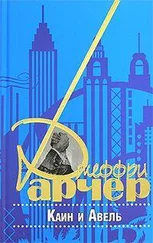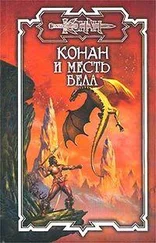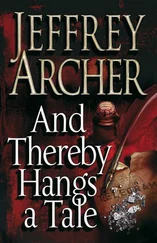Laughter followed, humour often emphasizing the truth. Alex turned a page.
‘The Communist Party, which appeared to be dead and buried a decade ago, has once again raised its head, and is now comfortably ahead in the polls. But if a candidate were to stand for president whose first interest was in democracy, and not in lining their own pockets, who knows what could be achieved?
‘You see before you a Russian who escaped to America some thirty years ago, but who in recent years has regularly returned to his homeland, because Lowell’s Bank takes the long view. I hope that in a hundred years’ time, America will still be Russia’s greatest rival. Not on the battlefield, but in the boardroom. Not in the nuclear arms race, but in the race to cure disease. Not on the streets, but in the classrooms. But that can only be achieved if every Russian vote is of equal weight.’
A long round of applause followed, as Alex turned another page.
‘Two hundred years ago, America was at war with Britain. In the past century, the two nations have twice united to fight a common enemy. Why shouldn’t America and Russia have a similar aim?’ Alex lowered his voice almost to a whisper. ‘I hope there are those among you who will join me, and try to make that ideal possible by building bridges and not destroying them, and by believing, as any civilized society should, that all men and women are born equal, whatever country they are born in. I can only hope that the next generation of Russians will, like the next generation of Americans, take that for granted.’
An audience that had decided to wait and hear Alex’s words before they passed judgement, rose as one, and caused him to wonder, not for the first time, if he should have taken Lawrence’s place not in the boardroom, but in the political arena.
‘You were magnificent, my darling,’ said Anna when he walked off the stage. ‘But I don’t remember those last couple of paragraphs when you were rehearsing your speech in the bathroom this morning.’
Alex didn’t comment. And it didn’t help, during the next couple of days, that whenever he was stopped in the conference hall, in his hotel, in the street, and even at the airport, delegates suggested, ‘Perhaps you are the man who should be standing for president in your country?’ And they didn’t mean America.
‘You did what?’ said Doug Ackroyd.
‘I sold one per cent of my shares in Lowell’s for twenty million dollars,’ said Evelyn proudly.
‘Why would you do something as stupid as that?’
‘Because by letting go of one per cent for twenty million, I established that the true value of my fifty per cent was a billion dollars.’
‘While at the same time you handed over control of the bank to Karpenko,’ said Ackroyd, spitting out the words. ‘They now have fifty-one per cent of the company, while you only have forty-nine.’
‘No,’ protested Evelyn, ‘I didn’t sell my one per cent to the bank.’
‘Then to whom, dare I ask?’
‘To George Soros, who I’m sure you’ll agree knows a damn sight more about banking and investments than either of us.’
‘Indeed he does,’ said Ackroyd. ‘But how, may I ask, did you happen to bump into the great man?’
‘I met him two weeks ago in Monte Carlo. A happy coincidence, don’t you think?’
‘No, I do not think it was a happy coincidence, Evelyn. It was a well-planned set-up, and you fell for it.’
‘How can you say that?’
‘Because two weeks ago George Soros was in Davos, giving a lecture on the Exchange Rate Mechanism. I know, because I was sitting in the audience.’
Evelyn’s legs gave way and she collapsed into the nearest chair. She was silent for some time before saying, ‘So what do I do now?’
‘Accept the bank’s offer of six hundred million dollars before they change their mind.’
‘Mrs Lowell-Halliday has accepted the bank’s offer of six hundred million dollars for her shares,’ said the company secretary. ‘But I’ll need the board’s approval before I can sign off on it.’
‘But that was when she owned fifty per cent of the bank’s stock,’ said Jake. ‘Thanks to Bob’s brilliant coup, she now only has forty-nine per cent, and we’re in control.’
‘Offer her three hundred million,’ said Alex, ‘and settle for four.’
‘Do you think she’ll agree to that?’ asked Mitch Blake.
‘Without a doubt,’ said Alex. ‘Ackroyd will advise her that she won’t get a better offer anywhere else, and if she agrees, the good news is that the bank will end up not having to pay her a penny.’
‘How come?’ said Alan Gates.
‘Simple really, but perhaps the time has come for Jake to tell the board a little more about the ace that we’ve always had up our sleeve.’
Jake opened a file and turned several pages before he came to the signed agreement. ‘Mrs Lowell-Halliday took out several loans over the years when her brother Lawrence was chairman of the bank. Ackroyd, as CEO, approved the transactions, and in order to give the deal some legitimacy, Evelyn agreed to pay an interest rate of five per cent per annum until the loans were repaid. Unfortunately for her, but fortunately for the bank, she hasn’t returned one red cent, but then, she never intended to.’ Jake turned a page before he continued. ‘The result is that after more than twenty years of debt and accumulated interest, she currently owes the bank just over 451 million dollars.’ Jake closed the file. A long silence was followed by a round of applause.
‘But she will still owe the bank over fifty million,’ said Bob, ‘even if she accepts the offer.’
‘Which we will agree to write off in exchange for her forty-nine per cent shareholding in the bank,’ said Jake.
‘Bravo,’ said Alex, before looking around the boardroom table. ‘However, I still can’t wait to hear the details of how Bob managed to make it all possible?’
The rest of the directors turned their attention to the longest-serving member of the board, who no longer had a shock of white hair.
‘A gentleman should never be indiscreet where a lady is concerned,’ said Bob, ‘but I can report to the board that Mrs Evelyn Lowell-Halliday doesn’t know the difference between being laid and being screwed. By the way, chairman, can I now resign?’
London, 1999
‘Does the right honourable gentleman plan to visit his other constituency in the near future?’
Sasha smiled, while some laughed at the jibe, but then he had his answer well prepared.
‘I can tell the right honourable member that I have no plans to visit Russia in the near future. But I am looking forward to seeing the opening night of Swan Lake at the Royal Opera House, danced by the Bolshoi Ballet.’ He was about to add, the greatest ballet company on earth, but thought better of it.
‘Mr Kenneth Clarke,’ said the Speaker.
‘When the right honourable gentleman does next visit Moscow, could he point out to President Yeltsin that for a nation now posturing as a democracy, his country’s human rights record leaves much to be desired.’
This time the hear, hears were loud, and not in jest.
Sasha rose again. ‘If the right honourable gentleman would be kind enough to bring to my attention any particular examples he has in mind, be assured I will look into them. However, members of the House may be interested to know that Mr Boris Nemtsov, a former vice premier of Russia, is sitting in the Distinguished Strangers’ Gallery, and I’m sure he will have heard the honourable gentleman’s question.’
Sasha glanced up at the gallery and smiled at his friend, who seemed amused by his moment of notoriety.
When questions to the Foreign Secretary came to an end and the Speaker called for the business of the day, Sasha quickly left the chamber and made his way to the Central Lobby, where he had arranged to meet up with Nemtsov.
Читать дальше
